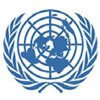
The United Nations Seminar on Assistance to the Palestinian People explored during its third plenary session the theme “Looking ahead: Creating conditions for Palestinian economic recovery”. The Former Minister of Public Works and Housing, Palestinian Authority and President, Palestinian Economic Centre for Development and Reconstruction, Mohammed Shtayyeh, said there was no lack of initiatives but a lack of implementation of existing agreements. Another interim agreement would be a failing enterprise. Israelis and Palestinians must go to final negotiations for a permanent solution. Read more about Doha seminar on assistance to Palestinian people concludes

Although Israel had called for international sanctions against the Palestinians following the election of Hamas in 2006, it found itself scrambling to restore aid to avoid a human catastrophe when it appeared that those sanctions were working too well, Jerusalem-based Alternative Information Center Researcher Shir Hever told the United Nations Seminar on Assistance to the Palestinian people this morning. The Israeli Government was now beginning to understand its responsibility for the humanitarian situation on the ground. Read more about Middle East experts review international response to needs of Palestinian people
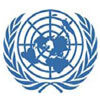
The unrelenting Israeli imperatives to accommodate its territorial design gave rise to a noticeable shift in the way the international community framed Israeli-Palestinian relations, Sara Roy of the Harvard Center for Middle East Studies said this afternoon at the first plenary session of the United Nations Seminar on Assistance to the Palestinian People in Doha, Qatar. The international community now emphasized humanitarian issues over political issues, she said. It was not surprising that Israel transferred revenues with conditions that the money be only used for humanitarian purposes. Read more about Doha meeting explores socio-economic, humanitarian crisis in Palestinian territory
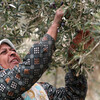
Olives, a centuries-old mainstay of the Palestinian economy, are in peak season for harvest from the middle of October to the beginning of November. Forty-five percent of Palestinian agricultural land (228,560 acres/914,235 dunums) is planted with olive trees. This year’s olive harvest is a source of hope for a community with over 2/3 of its population living in poverty (less than $2.7/day). As a bumper crop year, the olive industry promises to contribute over 118 million USD (based on 2003/4 figures) to the fragile West Bank economy - 22 percent of total agricultural production. Read more about The olive harvest in the West Bank and Gaza

According to the Higher Relief Committee (HRC) of the Government of Lebanon, 1,020 people have been killed and 3,508 injured. The number of displaced currently stands at 915,000 (45 percent are children). Most internally displaced persons (IDPs) are located in South Beirut, Mount Lebanon, Chouf, and Aaley, and others are located in and around Bekaa and northern Lebanon. Although some IDPs remain in the coastal cities of Tyre and Sidon in southern Lebanon, few people remain in southern Lebanese villages, and many who initially moved to southern cities have now fled further north. Read more about UN agencies: 1,020 killed; 915,000 displaced

8 July 2006 - The United Nations Humanitarian Agencies working in the occupied Palestinian territory, are alarmed by developments on the ground, which have seen innocent civilians, including children, killed, brought increased misery to hundreds of thousands of people and which will wreak far-reaching harm on Palestinian society. An already alarming situation in Gaza, with poverty rates at nearly eighty per cent and unemployment at nearly forty per cent, is likely to deteriorate rapidly, unless immediate and urgent action is taken. Since the strike on Gaza�s only power plant on June 28th, the entire strip is without electricity for between 12 and 18 hours every day. Read more about Statement by the United Nations Agencies working in the occupied Palestinian territory
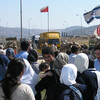
Representatives of civil society concerned with the resolution of the Israeli-Palestinian conflict met in Cape Town today to explore the role of civil society in supporting a peaceful solution of the Israeli-Palestinian conflict. During the meeting, a number of speakers described the similarities and differences between the Palestinian and South African struggles and urged the conference to call for a boycott of products from Jewish settlements. International isolation, internal resistance, underground movement and armed resistance, pillars of the South African struggle, should be kept in mind when talking about a platform for a solution to the Palestinian question. Read more about Speakers at Capetown meeting compare situation in Palestine with South African apartheid
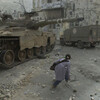
Ten United Nations institutions call on the Israeli authorities to ease restrictions on movement in the occupied territory to enable 60,000 Palestinian students to sit for their Tawjihi matriculation final exams beginning today 7th of June. Almost 60,000 Palestinian children out of the 1.2 million children of school age will sit for Tawjihi high school matriculation exams starting today. In Rafah alone, more than 3,000 school children will take these important and future defining exams. Read more about UN Bodies Concerned about Safe Access for 60,000 Palestinian school students to Exam Sites

In an open briefing to the Council on the situation in the Middle East, Assistant Secretary-General for Political Affairs Danilo Türk said the pullout should have four main features in order to garner the broad support of the international community and strengthen its chances for success. First, it should be carried out in partnership with the Palestinian Authority and as part of the Quartet’s Road Map, which remains the only plan subscribed to by the parties and the international community, Mr. Türk said. The withdrawal should be full and complete, and it should be considered by all as a first step toward the fulfilment of the UN’s calls to the Israeli Government to end its occupation. Read more about "Small window of opportunity" for restarting peace process remains open, Security Council told

The General Assembly today kicked off its debate of the situation in the troubled Middle East, focusing on a host of challenging issues, from the importance of restoring calm in Iraq, to quelling tensions in the Syrian Golan and bringing an end to the Israeli-Palestinian conflict — which many believed was the key to ensuring peace throughout the entire region. The General Assembly met today to continue its consideration of the question of Palestine and to begin its consideration of the situation in the Middle East. Read more about Resolving Israeli-Palestinian conflict, restoring calm in Iraq among Middle East challenges, UN GA told









